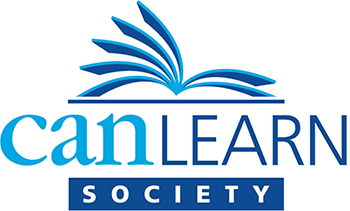We are faced with a situation that has no end in sight. Across the country people’s coping skills have been pushed to their limits.
One of the difficult things about this situation is the feeling that we have no control over it. We are all worried. Telling yourself to stop worrying doesn’t work – psychology studies tell us that if you tell yourself not to think about a glass of milk, you will probably have trouble doing that.
Because our thoughts are connected with our emotions, it is not easy to think positively during these times. The more negative thoughts we have; the more we believe them, the more we believe we can’t cope.
And this is where this blog comes in.
At CanLearn, we strongly believe that all of our learning programs have a role to play in helping adults, children and families in facilitating their emotional well-being during these times of uncertainty, a role that complements the work of other professionals involved.
Last week, our staff spent time connecting with our learners, figuring out technology tools and determining why it was important to continue running our programs, as well as what aspects of our program we needed to change and how could we make change happen.
First and foremost, we are very pleased about the positive response we have received from our learners, as the majority of them have accepted our invitation to continue their programs with eagerness and gratitude. We feel that it is not enough to simply say that we want to continue supporting our learners online; we need to figure out what that means and how we can achieve it while keeping in mind that now is a time for action rather than talk.
For the time being, our literacy programs will focus their learning goals on emotional literacy – building resilience and approaching life’s challenges with optimism and hope.
“Optimism means having a strong expectation that, in general, things will turn out all right in life, despite setbacks and frustrations… optimism is an attitude that buffers people against apathy, hopelessness or depression in the face of tough going.” (Emotional Intelligence, Daniel Goleman, 1995)
With the quote above in mind, let us describe a few learning tools we are going to use in our literacy programs:
Writing
We will encourage to our learners to put their thoughts on paper.
Studies have shown that writing about distressing experiences can help people make sense of them and reduce negative emotions. Likewise, writing about positive or hopeful thoughts helps us to become positive because we put our attention on hope. This kind of writing leads to optimism. We will embed a variety of activities that will facilitate:
- Gratitude writing – writing about things in their lives-no matter how small they are- for which they are grateful. These could include healthy family members, sunny skies, a friend to talk with online;
- Visualization writing – visualizing what things would be like when things get back to normal and writing about it in positive terms, with as much detail as possible, noting the colours, sounds and sights that you find in your visualizations.
With adults writing can come in the form of journal, while with children it will come through drawing, art and play activities.
Conversations that facilitate thought shifting
We will help our learners challenge their worries with questions such as, “Is there anything at all good about the situation? (E.g. we live in a country/province that has resources to help people navigate the situation).
Laughter
Maintaining a sense of humour is important to our emotional survival in the days, weeks and months to come. We will plan activities to encourage our learners to incorporate laughter in their day, to immerse themselves in humorous books and movies and engage in light-hearted interactions with their family members.
Our staff will continue to proactively reflect on the both opportunities and obstacles we are likely to encounter and we will carefully navigate these as they arise.
We keep Maya Angelou’s quote in mind “Do the best you can until you know better. Then when you know better, do better.”





